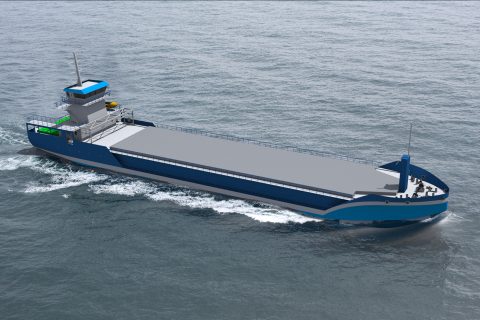
Multipurpose shipping
DEKC develops breakbulk vessel with modular, exchangeable engine room
Engineering company DEKC has developed a new ship which can help shipowners invest in their fleet without having to worry if today’s choices will still be relevant in 10 years time. DEKC’s new vessel design, called the FutureTrader, combines an optimized hull with a modular and exchangeable engine room.
Want to read more?
You have read all of your free premium articles for this month. Please become a subscriber to keep reading.
Subscribe now!
Take advantage of our exclusive offer to get full access to all premium content.
Related posts
Add your comment
Log in through one of the following social media partners to comment.




